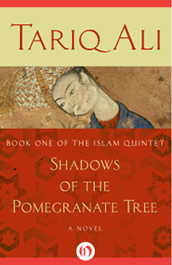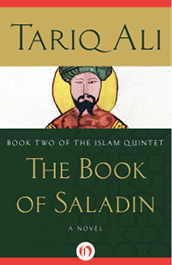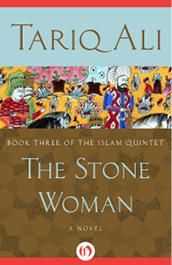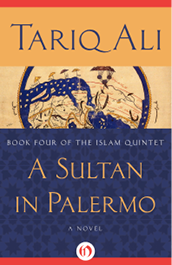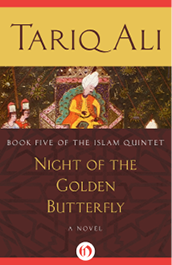The Stone Woman (40 page)
Authors: Tariq Ali

‘What is the charge against Philip?’
‘That he was too lenient to the prisoners taken at Bone.’
‘Sultan, both you and your father in his time showed leniency in your dealings with defeated people. In itself what Philip did does not constitute a crime. Your Bishops and no doubt the Barons who feed them and protect the church estates are fearful of Philip’s power and his closeness and loyalty to you. Send him away if you must, but do not burn him. It will not appease their hunger. You are ill and weak, I know, but your political strength remains. Burn Philip and those you appease today will destroy your heirs tomorrow. My advice as a friend is to resist the pressure. Turn their demands on them. You know better than me how the Barons have stolen lands and abducted young children for ugly purposes. Ask the bishops to try these men for their crimes before you touch Philip. Get something in return for the crime you are about to sanction. If they refuse, then you can return to being your old, compassionate self.’
Rujari did not reply.
‘With your permission, I will take your leave now.’
A slight nod from Rujari was the only response.
The mapmaker was trembling with rage as he bowed and left the chamber. Outside he was escorted by one of the lesser Chamberlains and two slaves. As he walked through the outer courtyard, he saw a figure flying in his direction. He stopped till the apparition almost ran into him.
‘Elinore, child,’ he said, because the way she looked at him with a single raised eye reminded him of Walid. He bit his lip, but she did not appear in the least disconcerted.
‘Master Idrisi, my mother and I are going to spend the day with her family next week. Since your sister will also be there it would be a pleasure if we could break bread together. You do not need the permission of the Sultan to visit your sister, or do you?’
‘I will think about your suggestion, Princess.’
‘If you are fearful of losing your way I will happily draw you a map.’
He burst out laughing. ‘I will be there, provided you let me know the day.’
‘Good. We will discuss Pythagaros of Samos and his ideas. I believe in the importance of numbers, but definitely not seven.’
On seeing the surprise on his face, she laughed and disappeared. Thank Allah that every day was not like this one. As to which of the two emotions he encountered in the palace that day affected him more, it was difficult to say. That he still loved Mayya was hardly a surprise. She was forever locked inside him. On his long voyages, she was always with him, a willing participant in dozens of imagined conversations that had become a balm to ease his mental exhaustion.
In the past when she had whispered in his ear that Elinore was his daughter, he had not completely believed her. He had thought this was her way of assuaging her guilt. He did not know that she had none; guilt played no part in her feelings. For her, the offer of a place in the Sultan’s harem had not been a choice. It was a command. She had not had to be told that if she disobeyed, her entire family would suffer. In this respect all Sultans were the same: a belief in the prophecy of Muhammad or the miracles of Jesus made no difference. The satisfaction of their carnal needs transcended all spiritual beliefs.
Idrisi saw now that there was no way she could have conveyed this to him, but with his knowledge of the world he should have known. How they had managed to meet in secret and made love was something that still frightened and astonished him. She was sure they had not been seen, that not even the most hated eunuch of the harem knew what had happened, but could one be sure of anything in that cursed palace? Just as he should have known that for her, he, Muhammad al-Idrisi, would be the only man in her life. It upset her that the fever of love had left no mark on him, but here she was wrong. She looked for physical signs and wondered why he was not thin and distraught. That was how the poets described lovers who had been deprived of their beloved. If Qays could starve himself for his Laila, why not Muhammad for his Mayya? She did not know that she was ever present in his mind, that the book he had just completed was written for her, not the Sultan, that the main reason he stayed close to Rujari and, in consequence, angered many of his friends, was to be close to her. He had never told her that because he did not think she would believe him.
Of one thing Idrisi was now certain. Elinore was his child. All doubts had fled. And he feared that the Sultan suspected as much. The joy of holding Mayya in his arms and seeing his daughter had lifted his heart. But now, as he walked back to his house, acknowledging the greetings of passers-by as if in a dream, he could not get the thought of Philip out of his head. He knew him well, which did not make it easier to accept Rujari’s decision. Philip had been helpful in regard to the book, on one occasion going so far as to capture and bring to Palermo a Chinese merchant for questioning on his country’s coastal lines.
But it was a long-ago meeting that Idrisi now recalled. That day after patiently listening to him expand his ideas of the world for over an hour, Philip had smiled a sad smile and spoken words that Idrisi had never forgotten: ‘I have never doubted that your work is of great importance for you, Master Idrisi. And for the Sultan, who waits impatiently for the completion of your book. I am also aware of how much it costs you in personal terms. I know of the men in the mosque, good people most of them, who are angry with you for not doing more to help their cause. For me—and you will forgive me for speaking plainly—geography has never been decisive for knowledge. If anything, true knowledge drowns all the maps you make. For this knowledge comes from those permanent storms that torture our minds, like the whiplash on the naked body of a sailor or prisoner. In both cases the scars left behind never heal. It is this experience of living that educates us, Master Idrisi. Not your maps. Don’t misunderstand me. We need to know the size and extent of the world, but on its own the knowledge is useless. It is what we do with it that matters. Sometimes the followers of the Prophet become so distracted by new landscapes that they forget their origins. And one day, without warning, knights arrive. The cross that marks their shields is the colour of blood. Their fierce shouts resemble those of a hungry lion. It is this intrusion that reminds the Believers of who they once were and what they have become. But now it is too late. The damage has been done. They will not recover. Rujari is a wise and prudent ruler, but he will die. Then the knights will clamber over us like a lizard scaling a rock. They will decide that in order to preserve their own power they need to cleanse the court of people like you and me. Later they will wash Palermo with the blood of its people. I fear we have lost the war.’
These words reverberated in his mind as he thought of the consequences of Rujari’s decision to sacrifice the most intelligent adviser in his kingdom. Could anything be done to help Philip? Why shouldn’t he escape to Ifriqiya? It wouldn’t be difficult to organise a vessel that would transport him across the water. Philip, who knew everything, must be aware of what was being planned.
An unexpected sea breeze took Idrisi by surprise. Instinctively, he clutched at his beard to prevent it from swaying, a sensation he disliked intensely, but he had forgotten that the beard had been severely trimmed only a few days ago. As he stood looking out to sea he knew that the eternal war between land and water was not over. Many battles lay ahead and perhaps even Allah was not sure who would win. Would this island still be there a thousand years from now?
All rights reserved, including without limitation the right to reproduce this ebook or any portion thereof in any form or by any means, whether electronic or mechanical, now known or hereinafter invented, without the express written permission of the publisher.
This is a work of fiction. Names, characters, places, events, and incidents either are the product of the author’s imagination or are used fictitiously. Any resemblance to actual persons, living or dead, businesses, companies, events, or locales is entirely coincidental.
Copyright © 2000 by Tariq Ali
Cover design by Jason Gabbert
978-1-4804-4855-1
This edition published in 2013 by Open Road Integrated Media, Inc.
345 Hudson Street
New York, NY 10014

